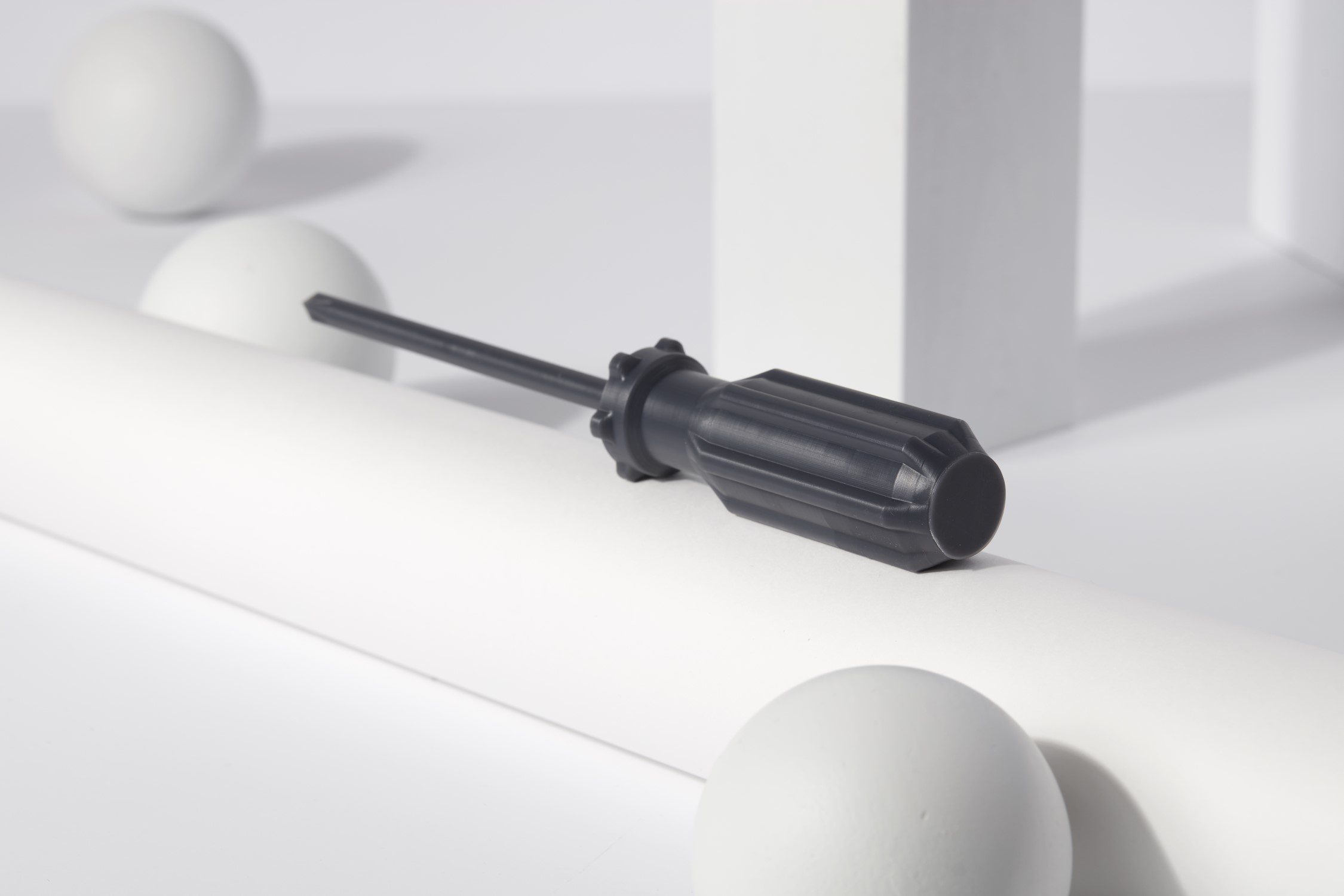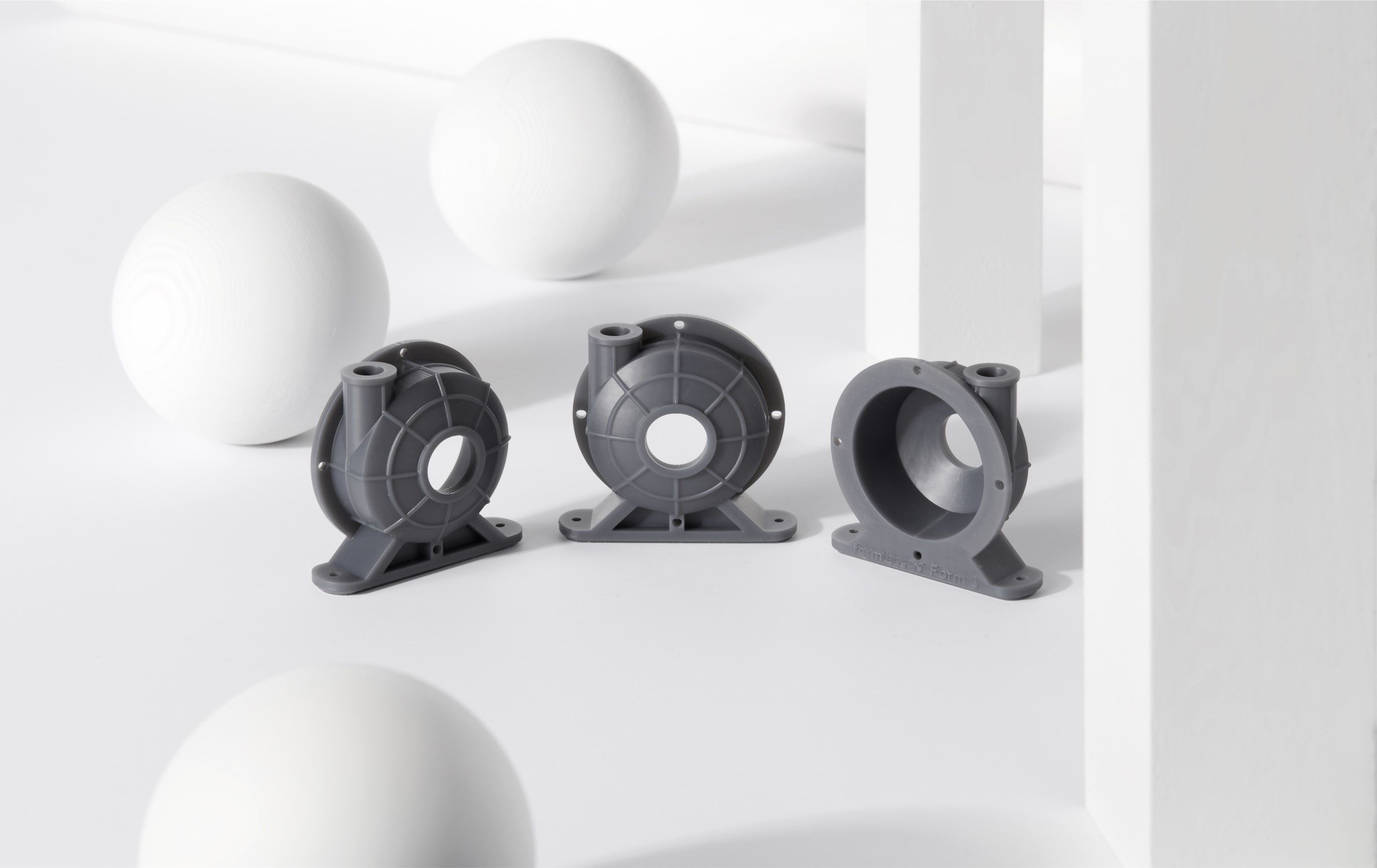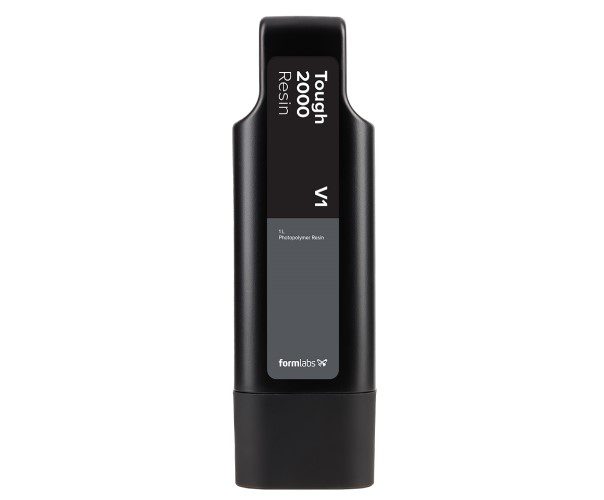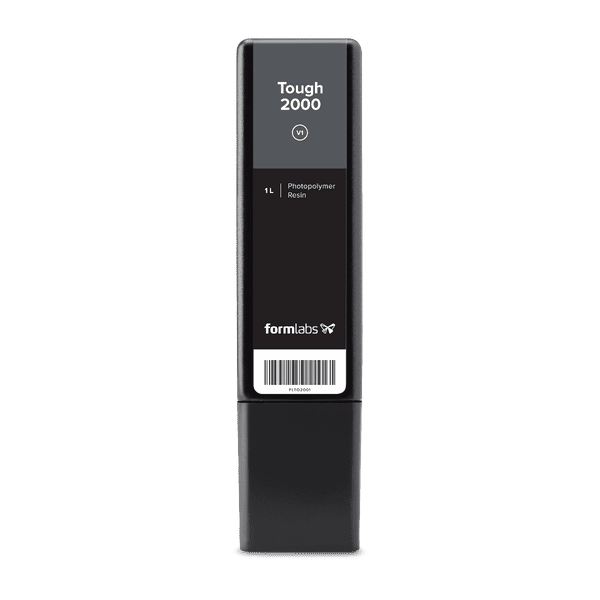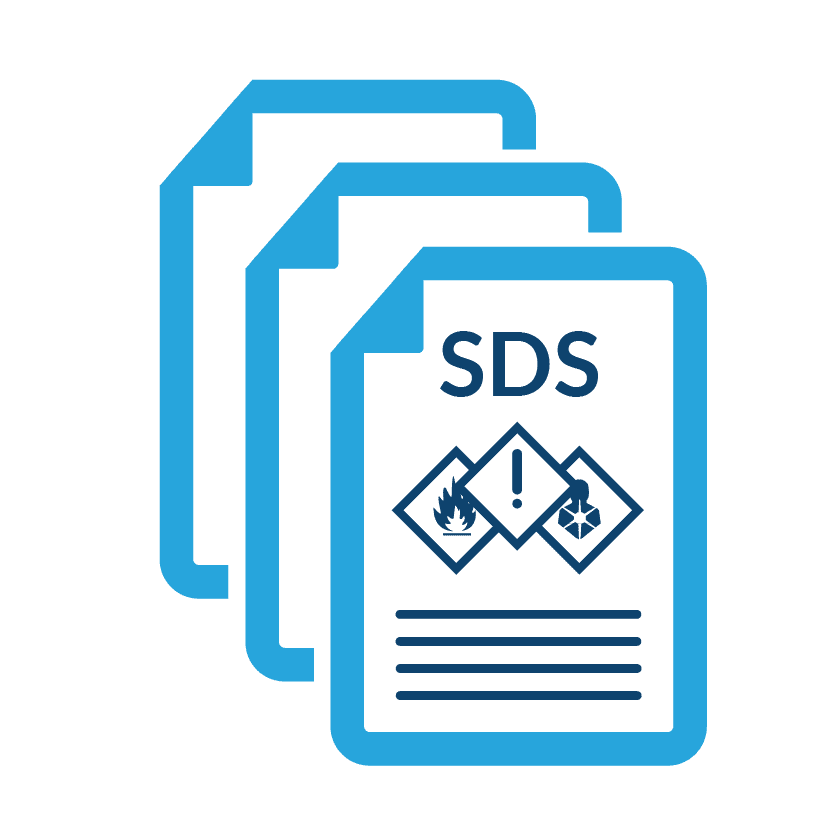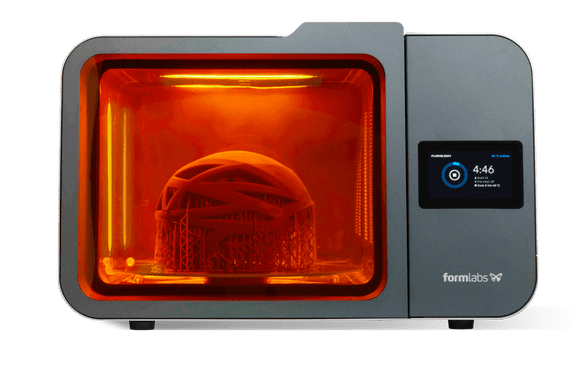Formlabs® Tough 2000
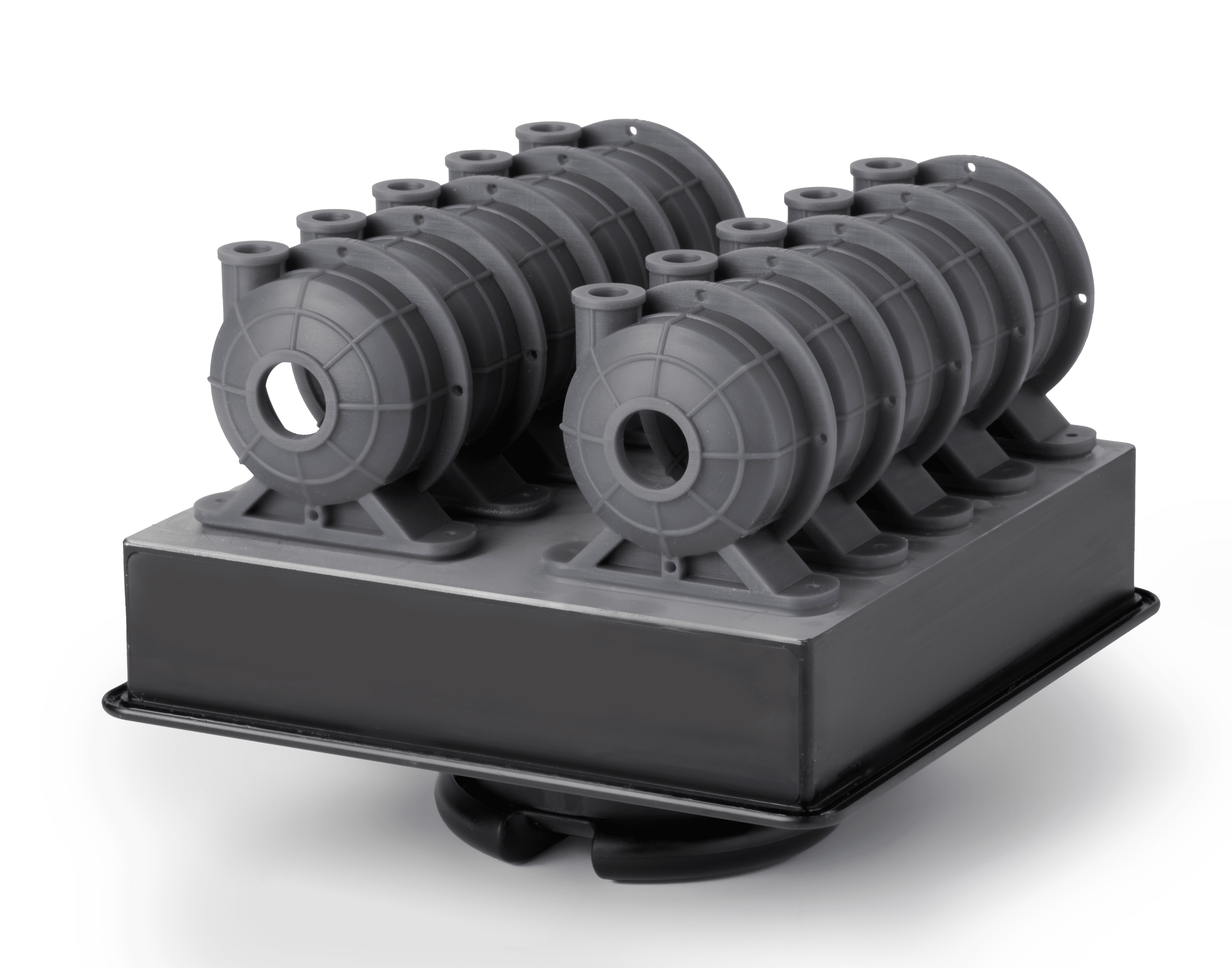
Formlabs®
Tough 2000
Tough and Durable for Rugged Prototyping
Formlabs® Tough 2000 simulates ABS in terms of stiffness and strength and is used for 3D printing functional parts such as housings and enclosures, jigs and fixtures, mechanical connectors, and prototypes undergoing wear and tear.
Tough2000. Engineered for better, stronger, and more rigid plastic.
Consider using Tough 2000 Resin to create resilient prototypes and components that can withstand bending. This resin is perfect for applications that require long-lasting endurance and minimal deflection. Its strength and stiffness are similar to ABS plastics, which ensures that functional parts and fixtures are reliable.
Material Properties
![]()
THERMAL EXPANSION
91.0 μm/m/°C
![]()
ULTIMATE TENSILE STRENGTH
46 MPa
![]()
TENSILE MODULUS
2.2 GPa
![]()
ELONGATION AT BREAK
48% (post-cured)
| Stiff & Sturdy | |
| Resistance to Loads | |
| Aesthetics |
Material Variants | 3D Printer Compatibility
Post Processing
Technical Specifications¹
Green2 |
Post-Cured3 |
|
Tensile Properties |
29 MPa | 46 MPa |
Tensile Modulus |
1.2 GPa | 2.2 GPa |
Elongation at Break |
74% | 84% |
Flexural Strength |
17 MPa | 65 MPa |
Flexural Modulus |
0.45 GPa | 1.9 GPa |
Notched Izod |
79 J/m | 40 J/m |
Unnotched Izod |
208 J/m | 715 J/m |
Heat Deflection Temperature @ 0.45 MPa |
48 °C | 63 °C |
Heat Deflection Temperature @ 1.8 MPa |
42 °C | 53 °C |
Thermal Expansion (0-150 °C) |
107 μm/m/°C | 91 μm/m/°C |
¹ Material properties can vary with part geometry, print orientation, print settings, and temperature.
² Data was obtained from green parts, printed using Form 2, 100 μm, Tough 2000 settings, without additional treatments.
³ Data was obtained from parts printed using Form 2, 100 μm, Tough 2000 settings and post-cured with a Form Cure for 120 minutes at 80 °C.
